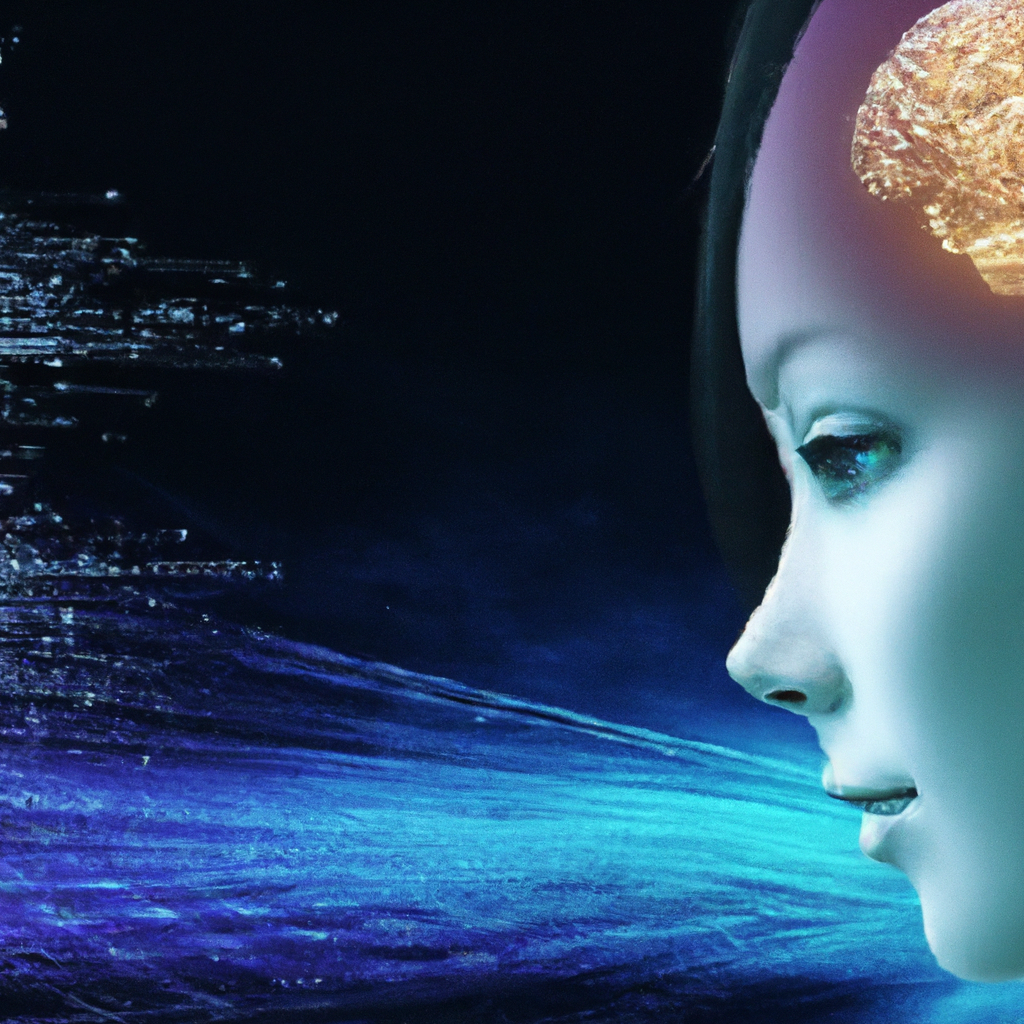The Future Of AI In Society

Imagine a world where artificial intelligence seamlessly integrates into every aspect of our daily lives, making our tasks easier, our decisions smarter, and our interactions more intuitive. The future of AI in society holds endless possibilities, with advancements in machine learning and robotics paving the way for a revolution that will shape the way we live, work, and connect with one another. From smart homes that anticipate our needs to self-driving cars that navigate the streets on their own, this article explores the exciting potential of AI technology and its profound impact on our future.

AI in the Workplace
Automation of Tasks
AI technology has revolutionized the workplace by automating various tasks that were previously done manually. From data entry to repetitive administrative tasks, AI systems can analyze and process information at a much faster rate, freeing up valuable time for employees to focus on more complex and creative tasks. By automating routine processes, businesses can enhance efficiency and accuracy, leading to increased productivity and cost savings.
Increased Efficiency and Productivity
With AI in the workplace, efficiency and productivity levels are significantly improved. AI-powered systems can analyze vast amounts of data in real-time, enabling businesses to make faster and more informed decisions. For example, AI algorithms can analyze customer data to identify patterns and trends, allowing companies to personalize their marketing strategies. This technology also streamlines workflows by automating manual processes, reducing human error and speeding up operations.
Impact on Employment
The introduction of AI in the workplace has raised concerns about its impact on employment. While it is true that some routine tasks may become automated, it also creates new job opportunities. AI technology requires skilled professionals to develop, manage, and maintain the systems. Moreover, automation frees up human resources to focus on tasks that require critical thinking, creativity, and emotional intelligence, areas where humans excel. As AI continues to evolve, there will be a shift in job roles, requiring workers to adapt and acquire new skills to work alongside AI systems.
Creating New Job Opportunities
Contrary to the belief that AI will eliminate jobs, it also creates new job opportunities. AI specialists, data scientists, and AI trainers are in high demand as businesses strive to harness the power of AI technology. As more companies integrate AI into their operations, there is a growing need for individuals with expertise in AI development, implementation, and maintenance. Additionally, AI also opens up opportunities for job roles that did not exist before, such as AI ethicists and AI trainers, who ensure responsible and ethical use of AI systems.
AI in Healthcare
Diagnosis and Treatment
AI has the potential to revolutionize healthcare by assisting in diagnosis and treatment. Machine learning algorithms can analyze vast amounts of medical data, including patient records, symptoms, and medical literature, to assist healthcare professionals in accurate diagnosis. AI can also provide treatment recommendations based on proven patterns and responses to different therapies, enabling personalized and effective treatment plans. By leveraging AI technology, healthcare providers can improve diagnostic accuracy and outcomes, ultimately saving lives.
Predictive Analytics for Disease Prevention
AI-powered predictive analytics plays a crucial role in disease prevention. By analyzing various data sources, such as electronic health records, lifestyle data, and genomics, AI can identify individuals at risk of developing certain diseases. This enables healthcare providers to implement preventive measures and personalized interventions before the disease progresses. AI can also analyze public health data to predict outbreaks, enabling timely interventions and resource allocation for effective disease control and management.
Challenges and Ethical Considerations
While AI brings tremendous potential in healthcare, there are also challenges and ethical considerations to be addressed. The accuracy and reliability of AI algorithms need to be carefully monitored and validated to ensure patient safety and avoid potential biases. Issues related to data privacy, security, and ownership also need to be addressed to ensure the protection of patients’ sensitive information. Additionally, ethical guidelines and regulations must be established to govern the use of AI in healthcare and mitigate any potential risks.
Improved Patient Care and Experience
AI technology can greatly enhance patient care and experience. Virtual assistants and chatbots powered by AI can provide round-the-clock support to patients, answering their queries and assisting with appointment scheduling. AI-driven voice recognition systems can transcribe patient-doctor interactions accurately, ensuring that important details are not missed. AI-powered robots can also perform certain healthcare tasks, such as medication delivery in hospitals, minimizing human contact and reducing the risk of infection. AI technology has the potential to revolutionize patient care by improving accessibility, efficiency, and overall experience.
AI in Education
Personalized Learning
AI in education has the potential to revolutionize the way students learn by enabling personalized education experiences. AI-powered adaptive learning systems can analyze students’ performance and learning patterns to customize the curriculum and learning materials accordingly. This allows students to learn at their own pace and in their preferred learning style, maximizing their potential and engagement. AI can also provide real-time feedback and recommendations to students, helping them to identify areas of improvement and providing personalized support.
Efficient Administrative Tasks
Administrative tasks in education can be time-consuming and tedious. AI technology can automate administrative tasks such as grading, scheduling, and data management, freeing up teachers’ time to focus on instructional tasks. AI-powered systems can process and analyze large volumes of data, allowing educational institutions to make data-driven decisions for continuous improvement. By automating administrative tasks, AI technology streamlines educational processes, enabling teachers and administrators to devote more time to individualized instruction and student support.
AI Tutors and Virtual Classrooms
AI-powered tutors and virtual classrooms are transforming the way education is delivered. AI tutors can provide personalized support to students, adapting their teaching methods based on individual learning needs. Virtual classrooms powered by AI allow students to access high-quality educational content and interact with teachers and peers remotely. AI can also assist in language translation, facilitating communication and collaboration among students from different linguistic backgrounds. These AI-driven solutions have the potential to make education more accessible, flexible, and inclusive.
Ethical and Privacy Concerns
The integration of AI in education raises ethical and privacy concerns that need to be addressed. Student data privacy is of utmost importance, and measures must be in place to protect sensitive information. Ethical considerations around the use of AI algorithms in assessing student performance and making educational decisions also need to be carefully examined. It is crucial to have guidelines and regulations to ensure responsible and ethical implementation of AI in education, promoting equity, and safeguarding students’ rights.

AI in Transportation
Autonomous Vehicles
The development of autonomous vehicles powered by AI has the potential to revolutionize transportation. AI technology enables vehicles to perceive their surroundings, make real-time decisions, and navigate safely without human intervention. Autonomous vehicles can enhance road safety by reducing human error, the main cause of most accidents. These vehicles can also improve traffic flow and efficiency by communicating and coordinating with each other and traffic management systems. The introduction of autonomous vehicles will transform the transportation industry, making travel safer, more efficient, and convenient.
Enhanced Traffic Management
AI technology can greatly improve traffic management systems. AI algorithms can analyze real-time traffic data, including traffic flow, congestion patterns, and accident information, to optimize traffic signal timings and route assignments. By dynamically adjusting traffic signals and routes based on current conditions, AI-powered traffic management systems can alleviate congestion, reduce travel times, and enhance overall transportation efficiency. This technology can also contribute to reducing carbon emissions by promoting smoother traffic flow and minimizing idling time.
Reduced Accidents and Congestion
By reducing human error, the implementation of AI in transportation has the potential to significantly reduce accidents and congestion on the roads. AI-powered systems can constantly monitor and analyze road conditions, weather patterns, and driving behavior to detect potential risks and intervene accordingly. Autonomous vehicles, equipped with AI technology, can react faster and make better decisions in challenging situations, reducing the likelihood of accidents. Moreover, AI-powered traffic management systems can optimize traffic flow, minimizing congestion and its associated economic and environmental impacts.
Impact on Jobs and Infrastructure
The introduction of AI in transportation may have an impact on jobs and infrastructure. While autonomous vehicles have the potential to eliminate certain jobs, such as truck driving and taxi services, they also create new job opportunities in AI system development, maintenance, and monitoring. The infrastructure needs of transportation will also evolve to support AI-powered systems, including the installation of sensors, communication networks, and smart infrastructure. Adapting to these changes will require careful planning and investment in reskilling and retraining programs to ensure a smooth transition for workers.
AI in Finance
Automated Trading and Investment
AI technology has transformed the finance industry by revolutionizing trading and investment practices. AI-powered algorithms can analyze vast amounts of financial data, including market trends, economic indicators, and investor behavior, to make real-time investment decisions. These algorithms can identify patterns and predict market movements, enabling automated trading and investment strategies that maximize returns and minimize risks. AI-powered trading systems operate 24/7, ensuring that investment opportunities are not missed due to human limitations.
Fraud Detection and Prevention
AI technology plays a critical role in detecting and preventing fraudulent activities in the finance industry. Machine learning algorithms can analyze large volumes of financial data, including transaction records, customer behavior patterns, and historical fraud cases, to identify anomalies and potential fraud attempts. AI-powered systems can detect unusual patterns, flag suspicious transactions, and raise alerts for further investigation. By leveraging AI technology, financial institutions can enhance security measures, protect customer assets, and minimize financial losses due to fraudulent activities.
Improved Customer Service
AI technology has transformed customer service in the finance industry. AI-powered chatbots and virtual assistants can provide personalized and immediate support to customers, addressing their queries, and providing relevant information on-demand. These virtual assistants can handle routine customer inquiries, process simple transactions, and guide customers through various financial processes. By leveraging AI technology, financial institutions can enhance customer satisfaction, reduce response times, and provide round-the-clock support, ultimately improving the overall customer experience.
Concerns about Data Security and Privacy
The integration of AI in finance raises concerns about data security and privacy. Financial institutions handle sensitive customer information, and ensuring the security of this data is of utmost importance. AI systems that collect and process financial data must have robust security measures in place to protect against unauthorized access and data breaches. Additionally, regulations and guidelines must be established to govern the responsible and ethical use of AI in finance, ensuring transparency and accountability in data handling and privacy protection.
AI in Entertainment
Personalized Content Recommendations
AI technology has transformed the entertainment industry by providing personalized content recommendations to users. AI algorithms analyze user preferences, viewing history, and behavioral patterns to suggest relevant movies, television shows, music, and other forms of entertainment. By offering personalized recommendations, AI-powered content recommendation systems enhance user satisfaction and engagement, ultimately driving user retention and revenue for entertainment platforms.
Virtual Reality and Augmented Reality Experiences
AI technology has revolutionized virtual reality (VR) and augmented reality (AR) experiences in the entertainment industry. AI algorithms can enhance immersive experiences by analyzing user interactions, preferences, and real-time inputs to generate dynamic and personalized content within virtual environments. AI-powered systems can adapt and respond to user behavior, enabling realistic and interactive virtual and augmented reality experiences. This technology opens up new possibilities for storytelling, gaming, and entertainment, captivating audiences and shaping the future of entertainment experiences.
Automation in Content Creation and Production
AI technology is automating various aspects of content creation and production in the entertainment industry. AI-powered systems can analyze large volumes of content, including images, videos, and audio, to generate automated content, such as automated video editing and music composition. AI algorithms can also assist in content curation and optimization, enabling creators and producers to tailor content to specific target audiences. This automation in content creation and production streamlines workflows, reduces production costs, and enhances overall efficiency in the entertainment industry.
Ethical and Legal Challenges
The integration of AI in the entertainment industry raises ethical and legal challenges that need to be addressed. AI algorithms that analyze user data for personalized recommendations must respect user privacy and ensure the responsible use of personal information. Intellectual property rights and copyright issues also come into play when AI systems generate content. Ethical guidelines and regulations need to be established to address these challenges, ensuring transparency, accountability, and responsible use of AI technology in the entertainment industry.
AI in Communication
Chatbots and Virtual Assistants
AI-powered chatbots and virtual assistants are revolutionizing communication by providing automated and personalized support to users. Chatbots can interact with users, answer frequently asked questions, provide recommendations, and facilitate transactions. Virtual assistants, powered by AI, can perform tasks such as voice recognition, speech synthesis, and natural language processing, enabling seamless and interactive conversations with users. These AI-driven communication tools enhance customer service, reduce response times, and provide round-the-clock support.
Natural Language Processing
Natural Language Processing (NLP) is a branch of AI that focuses on the interaction between computers and human language. NLP enables computers to understand, interpret, and generate human language, enabling seamless communication between humans and machines. NLP techniques are used in various applications, such as voice assistants, language translation, sentiment analysis, and text-to-speech synthesis. By leveraging NLP technology, communication becomes more efficient, natural, and accessible, bridging the gap between humans and AI systems.
Language Translation and Interpretation
AI-powered language translation systems are transforming communication on a global scale. These systems can analyze and interpret multiple languages, enabling seamless communication between individuals who speak different languages. AI-powered language translation tools can translate written text, spoken language, and even sign language, breaking down language barriers and promoting cross-cultural understanding. This technology opens up opportunities for global collaboration, trade, and cultural exchange, ultimately enhancing communication and connectivity in a diverse world.
Impact on Human Interaction and Language Skills
The integration of AI in communication has both positive and negative impacts on human interaction and language skills. On one hand, AI-powered communication tools enable efficient and convenient communication, reducing barriers and enhancing accessibility. On the other hand, there is a concern that excessive reliance on AI systems may lead to a decline in human interaction skills and language proficiency. It is essential to strike a balance between leveraging the benefits of AI-powered communication and maintaining human-to-human interaction to ensure the development of strong interpersonal and language skills.
AI in Governance
Data-driven Decision Making
AI technology enables data-driven decision making in governance, enhancing the efficiency and effectiveness of public services. AI algorithms can analyze large volumes of data, including public records, surveys, and social media data, to identify patterns and trends. This analysis enables policymakers to make informed decisions and design evidence-based policies that address societal challenges. By leveraging AI technology, governance can become more responsive, proactive, and citizen-centric, ultimately improving the lives of citizens.
Enhanced Public Services
AI has the potential to enhance public services by streamlining operations and providing personalized support to citizens. AI-powered virtual assistants can handle citizen inquiries, process applications, and guide individuals through government processes. These virtual assistants can provide personalized recommendations and assistance, reducing response times and improving the overall citizen experience. AI technology can also automate administrative tasks and data management, enabling government agencies to allocate resources more efficiently and focus on high-priority areas.
Ethics and Bias in AI Systems
The integration of AI in governance raises important ethical considerations. AI algorithms must be designed and trained to ensure fairness, transparency, and non-discrimination. Bias in AI systems can unintentionally perpetuate existing social inequalities and marginalize certain groups. It is crucial to address these biases and ensure that AI systems are developed and implemented in a way that promotes equal access and treatment for all citizens. Ethical guidelines and regulations must be in place to govern the development and use of AI in governance, safeguarding democratic principles and protecting citizens’ rights.
Transparency and Accountability
The integration of AI in governance requires transparency and accountability to ensure responsible and ethical use of AI systems. Citizens should have access to information about how AI algorithms are used in decision-making processes and how their data is collected and processed. Governments should be transparent about the goals, limitations, and potential risks of AI systems. Moreover, systems should be in place to hold decision-makers and AI developers accountable for any potential errors, biases, or violations of privacy. Transparency and accountability are essential to maintain trust and legitimacy in AI-powered governance.
AI in Agriculture
Precision Farming and Crop Monitoring
AI technology is transforming agriculture through the implementation of precision farming techniques. AI-powered systems can analyze various data sources, such as satellite imagery, weather data, and soil composition, to provide real-time insights on crop health, irrigation, and fertilization needs. This enables farmers to optimize resource allocation, reduce waste, and maximize crop yields. AI-powered drones and robots can also be utilized for monitoring crops and performing tasks such as planting and harvesting, further enhancing efficiency and productivity in agriculture.
Disease and Pest Detection
AI technology can assist farmers in early disease and pest detection, enabling timely interventions for crop protection. AI algorithms can analyze images and sensor data from farms to identify signs of plant diseases and pest infestations. By detecting these issues early on, farmers can take appropriate actions, such as targeted treatments or pest control measures, to prevent the spread of diseases and minimize crop losses. AI-powered disease and pest detection systems provide farmers with valuable insights and decision-making support, contributing to sustainable and efficient agricultural practices.
Enhanced Resource Management
AI technology plays a crucial role in enhancing resource management in agriculture. By analyzing data on weather patterns, soil conditions, and crop growth, AI systems can optimize resource allocation, such as water and fertilizers. AI-powered systems can provide real-time recommendations on irrigation schedules, nutrient applications, and crop rotation strategies, minimizing waste and maximizing resource efficiency. This technology enables farmers to make data-driven decisions, promoting sustainable and environmentally-friendly agricultural practices.
Sustainable Food Production
AI has the potential to contribute to sustainable food production by optimizing agricultural practices. AI-powered systems can analyze various data sources, including climate data, market demand, and transportation logistics, to optimize crop selection, production schedules, and supply chains. By matching production with demand and reducing food waste, AI technology can contribute to sustainable and efficient food production. From precision farming techniques to resource management, AI has the potential to transform agriculture and address the challenges of feeding a growing population in a sustainable manner.
AI in Environmental Conservation
Monitoring and Predicting Climate Changes
AI technology plays a crucial role in monitoring and predicting climate changes. AI-powered systems can analyze vast amounts of climate data, including temperature, precipitation, and atmospheric conditions, to identify patterns and trends. This analysis enables scientists and policymakers to better understand climate change dynamics and make informed decisions to mitigate its impacts. AI algorithms can predict extreme weather events, assess their potential risks, and aid in the development of strategies for adaptation and resilience.
Species Protection and Conservation Efforts
AI technology can greatly assist in species protection and conservation efforts. AI algorithms can analyze large datasets, including satellite imagery and biodiversity records, to identify and monitor endangered species, their habitats, and threats they face. AI-powered systems can identify illegal wildlife trafficking activities, enabling authorities to take swift action. This technology can also support wildlife research and conservation planning by providing valuable insights on species populations, distribution patterns, and ecological interactions. AI has the potential to enhance conservation efforts and protect biodiversity for future generations.
Efficient Resource Management
AI technology can enhance resource management in environmental conservation. By analyzing data on resource consumption, waste generation, and environmental impacts, AI-powered systems can provide insights and recommendations for more efficient resource use. For example, AI algorithms can optimize energy consumption in buildings, reduce water usage in agriculture, and enhance waste management practices. By leveraging AI technology, environmental conservation efforts can become more sustainable and effective, minimizing negative impacts on ecosystems and promoting responsible resource management.
Addressing Environmental Challenges
AI has the potential to address pressing environmental challenges by providing innovative solutions and insights. AI algorithms can analyze complex environmental data sets, enabling accurate climate modeling, pollution monitoring, and sustainable development planning. AI-powered systems can optimize renewable energy generation and distribution, promote circular economy practices, and identify environmentally-friendly alternatives to current industrial processes. By harnessing the power of AI in environmental conservation, we can tackle climate change, preserve biodiversity, and ensure a sustainable future for our planet.
In conclusion, AI technology has the potential to revolutionize various sectors of society. From the workplace to healthcare, education, transportation, finance, entertainment, communication, governance, agriculture, and environmental conservation, AI is transforming industries and enhancing productivity, efficiency, and decision-making capabilities. While there are challenges and ethical considerations to address, the benefits of AI in society are undeniable. As AI continues to advance, it is important to embrace its potential while ensuring responsible and ethical use, ensuring that AI technology serves as a force for the common good.






